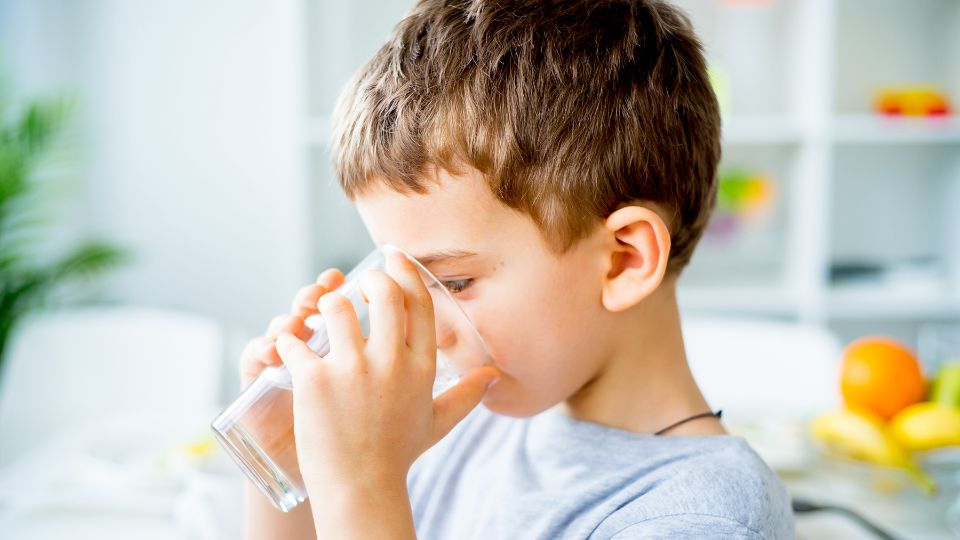Top Strategies for Soothing Your Unwell Child
To comfort your unwell child, focus on creating a cozy environment with soft blankets and soothing music. Offer plenty of fluids and nutritious snacks, ensuring they get rest and sleep. Provide gentle cuddles for emotional support and try warm baths with safe aromatherapy. Use humidifiers and vapor rub for congestion relief. Engage them in fun activities and games for distraction. Remember to consult a healthcare provider for persistent symptoms. Offer emotional support by listening and reassuring them. These strategies can help your child feel better.
Key Takeaways
- Create a cozy environment with soft blankets and calming music.
- Offer hydrating fluids and nutritious snacks for comfort.
- Ensure plenty of rest and establish soothing bedtime routines.
- Provide gentle touch and cuddles for emotional support.
- Use congestion relief methods like humidifiers and steam inhalation.
Comforting Environment

Create a cozy and inviting atmosphere in your child’s room to help them feel relaxed and comforted while they’re unwell.
Start by layering their bed with soft, cozy blankets that provide warmth and a sense of security. The tactile comfort of these blankets can be incredibly soothing for your little one during this time of discomfort.
Additionally, consider playing calming music in the background. Soft melodies or sounds of nature can help create a peaceful ambiance that encourages relaxation and rest.
Hydration and Nutrition

Ensuring that your unwell child stays hydrated and receives proper nutrition is essential for their recovery.
Offer your child plenty of fluids like water, clear broths, or herbal teas to keep them hydrated.
Healthy snacks such as fruits, yogurt, or whole-grain crackers can provide essential nutrients and energy.
Encourage your child to eat nutritious meals that are easy on the stomach, like soups, steamed vegetables, or lean proteins.
In addition to meals, consider incorporating supplements recommended by your healthcare provider to support your child’s immune system and overall health.
Vitamin C, zinc, and probiotics can help boost their recovery process.
Remember to consult with a healthcare professional before giving any supplements to your child.
Rest and Sleep
Make sure your unwell child gets plenty of rest and quality sleep to support their recovery process. Establish consistent sleep routines by maintaining regular bedtime hours to help your child relax and fall asleep easier. Create a calming environment by dimming lights and reducing noise levels before bedtime to promote better sleep quality.
Incorporate nap schedules into your child’s day to make certain they’re getting enough rest. Short naps can help prevent overtiredness and support their overall well-being. Encourage relaxation techniques such as reading a book together or listening to soft music to help your child unwind before sleep.
Gentle Touch and Cuddles
Encourage gentle touch and cuddles with your unwell child to provide comfort and emotional support during their recovery. Bonding time through physical affection can have a soothing effect on your little one. Your parental presence and warm embrace can offer a sense of security and reassurance, helping them feel safe and loved during this challenging time.
When your child is feeling under the weather, gentle touch and cuddles create a nurturing environment that fosters a strong parent-child bond. Through these gestures, you communicate your love and care without words, offering a source of comfort that goes beyond medicine and treatments.
Spending quality time cuddling with your unwell child not only aids in their emotional well-being but also strengthens your connection with them. Your touch can be a powerful tool in providing solace and relief, making them feel protected and cherished.
Warm Baths or Showers

A warm bath or shower can be a soothing remedy for your unwell child. Remember to check the water temperature to make sure it’s not too hot, and consider adding relaxing aromatherapy options like lavender or chamomile to promote calmness.
These simple steps can help create a comforting environment for your little one during a difficult time.
Water Temperature Safety
When preparing warm baths or showers for your unwell child, always prioritize checking the water temperature to guarantee safety and prevent burns. Bath temperature safety is vital to prevent scalding, especially when your child is feeling under the weather. To make sure the water is at a safe temperature, test it with your wrist or a thermometer before allowing your child to get in. Aim for lukewarm water around 98-100°F (37-38°C) to prevent any discomfort or harm.
Monitoring hydration is equally important during warm baths or showers. While the warm water can be soothing, it can also contribute to dehydration if your child is unwell. Encourage your child to drink water before and after the bath to stay hydrated.
Relaxing Aromatherapy Options
To further enhance the calming effects of warm baths or showers for your unwell child, consider incorporating relaxing aromatherapy options. Essential oil blends, when used in a diffuser during bath time, can create a soothing atmosphere that promotes relaxation and comfort. Choose calming scents like lavender, chamomile, or eucalyptus, known for their therapeutic properties. The gentle inhalation of these fragrances can help ease your child’s symptoms and create a sense of tranquility.
Before utilizing essential oils, make sure they’re safe for children and properly diluted. A few drops added to the bathwater or diffused in the air can work wonders. The warm steam from the bath or shower will help carry the scents throughout the room, enhancing the overall experience.
Creating a peaceful environment with aromatherapy can aid in reducing stress and promoting restful sleep for your unwell child. Experiment with different essential oil blends to find what works best for your little one, and always monitor their response to ensure they’re comfortable.
Herbal Remedies and Teas
If your child is feeling under the weather, herbal remedies and teas can offer relief in a gentle and natural way.
Herbal teas are soothing and can help alleviate symptoms like congestion or upset stomach.
Trying out these natural remedies might just be the comforting solution your little one needs.
Herbal Teas for Relief
During times of discomfort, herbal teas can provide soothing relief for your unwell child. Herbal tea benefits include natural ingredients that can help alleviate symptoms like nausea, sore throat, and congestion.
Chamomile tea is known for its calming properties, which can help your child relax and sleep better. Peppermint tea is great for soothing an upset stomach and relieving indigestion. Ginger tea can help with nausea and has anti-inflammatory properties that may ease sore throats.
When choosing herbal teas for your child, consider trying different flavors to find what they enjoy. Some tea flavors to try include fruity blends like raspberry or peach, which can be appealing to children. Herbal teas with hints of honey or lemon can also provide a comforting taste while offering additional health benefits.
Remember to check with your child’s healthcare provider before introducing any new herbal teas, especially if your child has existing medical conditions or is taking medications.
Natural Remedies to Try
Looking for natural remedies to help soothe your unwell child? Essential oils and homeopathy remedies can offer gentle relief without harsh chemicals.
Essential oils like lavender, chamomile, and eucalyptus have calming properties that can help ease discomfort and promote relaxation. You can verify these oils with a carrier oil and apply them topically or use a diffuser to fill the room with their soothing scents.
Homeopathy remedies, such as arnica for muscle aches or chamomilla for teething pain, are natural alternatives that may provide relief for various symptoms. These remedies work on the principle of ‘like cures like’ and are believed to stimulate the body’s healing process.
When using essential oils, always confirm they’re child-safe and properly diluted. Similarly, consult with a qualified homeopath before administering any homeopathy remedies to your child.
Remember that these natural remedies are meant to complement conventional treatments and shouldn’t replace medical advice. By exploring these gentle options, you can help ease your child’s discomfort naturally.
Humidifier for Congestion
Consider using a humidifier to help ease your child’s congestion and make breathing more comfortable. When your little one is struggling with congestion, a humidifier can be a valuable tool in providing relief. By adding moisture to the air, a humidifier helps to soothe irritated nasal passages and break up mucus, making it easier for your child to breathe.
In addition to using a humidifier, you can enhance its effectiveness by incorporating other methods such as using vapor rub on your child’s chest and back. The soothing vapors from the rub combined with the humidifier’s moist air can provide a double dose of comfort for your child.
Another helpful technique is steam inhalation. You can create a steam tent by having your child lean over a bowl of hot water with a towel draped over their head to help loosen congestion.
Entertainment and Distraction

When your little one is feeling under the weather, keeping them entertained and distracted can make a world of difference. Fun activities at home like coloring, crafting, or watching their favorite movie can help take their mind off discomfort.
Engaging toys and games can also provide a welcome distraction and bring a smile to their face during tough times.
Fun Activities at Home
Engage your unwell child in entertaining and distracting activities at home to help lift their spirits and provide some relief during this challenging time. Creative crafts can be a fantastic way to keep your child occupied and stimulated. Gather materials like colored paper, markers, stickers, and glue to create fun projects together. Whether it’s making paper plate animals, painting rocks, or designing homemade cards, these activities can spark creativity and bring a sense of accomplishment.
Musical activities are another great option to uplift your child’s mood. Singing along to favorite songs, playing simple instruments like shakers or drums, or even just having a little dance party can bring joy and help pass the time. Music has a unique way of soothing the soul and creating a positive atmosphere.
Engaging Toys and Games
To provide further entertainment and distraction for your unwell child, incorporating engaging toys and games can offer a fun and interactive way to keep them occupied and lift their spirits.
Creative play is a fantastic outlet for your child’s imagination to flourish even during times of illness. Encourage them to engage in activities like building blocks, coloring, or imaginative play with dolls or action figures. These types of games can transport them to different worlds and provide a much-needed break from feeling unwell.
Interactive games, such as board games or digital apps designed for children, can also be a great way to keep your child entertained while they recover. Playing games that involve problem-solving, memory, or creativity can help stimulate their mind and distract them from any discomfort they may be feeling.
Additionally, interactive games can be a bonding experience for the whole family, bringing moments of joy and laughter during a challenging time. Remember, the goal is to create a positive and uplifting environment for your child as they rest and recuperate.
Consult a Healthcare Provider
If your child’s symptoms persist or worsen, it’s important to consult a healthcare provider for proper evaluation and guidance.
In today’s digital age, many healthcare providers offer remote consultations and virtual check-ins as part of their services. Utilizing telemedicine benefits can provide you with quick access to healthcare professionals without leaving the comfort of your home.
Online resources also play a vital role in aiding parents in understanding their child’s symptoms and deciding when a healthcare provider’s intervention is necessary.
These resources can offer guidance on common childhood illnesses, potential treatment options, and when to seek professional medical help.
Emotional Support and Reassurance
Offering emotional support and reassurance to your unwell child is vital in helping them feel comforted and understood during this challenging time. Listening attentively to your child’s concerns and fears can make a significant difference in how they cope with being unwell.
Providing reassurance by acknowledging their feelings and letting them know that you’re there for them can help ease their distress.
It is essential to provide emotional comfort by staying calm and composed yourself. Children often look to their parents or caregivers for cues on how to react to a situation. By remaining composed, you can help create a sense of security and stability for your child during their illness.
Remember that your presence and support are powerful tools in helping your child navigate through their feelings of being unwell. By actively listening, offering reassurance, and providing emotional comfort, you can help your child feel more at ease and supported during this challenging time.
Frequently Asked Questions
Can Essential Oils Help Soothe My Child’s Symptoms?
Yes, essential oils can help soothe your child’s symptoms through aromatherapy benefits. Use essential oil diffusers with caution and research effectiveness. Always dilute oils properly for children. Take necessary precautions to guarantee safety and consult a healthcare professional if unsure.
Is It Safe to Use a Vaporizer in My Child’s Room?
Yes, it’s safe to use a vaporizer in your child’s room, but make sure proper room ventilation. Keep the vaporizer away from the child’s reach and follow all safety guidelines. Ventilation helps maintain air quality.
Should I Avoid Giving My Child Certain Foods When Unwell?
When your child is unwell, consider temporary dietary restrictions to ease symptoms. Focus on easily digestible foods and adequate hydration to support their recovery. Nutritious options can aid in their healing process and overall well-being.
How Can I Manage My Child’s Fever at Home?
To manage your child’s fever at home, use cold compresses to bring down temperature, encourage hydration, and administer the correct medication dosage as prescribed by the doctor. Monitor your child closely for any changes.
Are There Any Specific Toys or Activities to Avoid During Illness?
When your child is unwell, you should avoid loud toys that might be overwhelming. Opt for gentle play instead. Non-stimulating activities and quiet playtime can help create a calm environment for your little one.
Conclusion
Remember, when your child is unwell, providing a comforting environment, staying hydrated, getting plenty of rest, and offering gentle touch and cuddles can go a long way in soothing their symptoms.
Don’t hesitate to consult a healthcare provider if needed and remember to offer emotional support and reassurance throughout their recovery.
By following these strategies, you can help your child feel better and get back to their happy, healthy self in no time.

Chad Adan Kace, a young dad from Vermont, shares his parenting journey with a touch of humor and lots of love. Father to a lively baby, he explores the joys and challenges of fatherhood through his stories.







